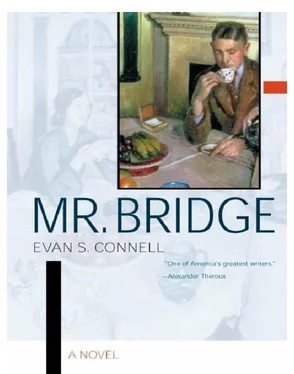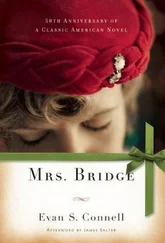Slumped in his chair beside the fireplace, he listened without a word, eyes half shut, to the voices soaring from the substantial walnut console. Occasionally he considered writing a letter to let the people in New York know how much he appreciated their program; but the idea of identifying himself to strangers was unacceptable, so he did not write. In the chair, comfortably dressed, sometimes in pajamas and bathrobe and carpet slippers, surrounded by his family after a Sunday-night meal of cold chicken and beer, or, in winter, of homemade chili and scrambled eggs and bacon, he half-slept and listened, unperturbed by anything except the knowledge that after a while the program was going to end. Now and then he opened his eyes and looked at his watch to see how much of the hour remained.
He knew that eventually the hour would end forever. The network might run into financial problems, the show might be canceled for any number of reasons, or somebody might be hired to replace Nelson Eddy. And even if none of these things came to pass, still the hour would end because the children were growing up; they would spend their Sunday evenings elsewhere, so it would not be quite the same.
The first to become restless was Ruth. She examined her fingernails and sucked her lip. Then one evening she excused herself before the program was over, saying she wanted to visit Dodie.
After she left the room he remarked that she seemed to be losing interest in music; but Mrs. Bridge said no, quite the contrary, during the past few months Ruth had grown extremely fond of music. She was borrowing records from the school music department; she brought them home and played them in the afternoon, and she was talking about trying out for the chorus.
He asked what sort of records she brought home. Mrs. Bridge said they were classical. He asked why Ruth never played them in the evening when he was at home, and she replied that perhaps Ruth was afraid of disturbing him. Nonsense, he said, he would like to hear them. Mrs. Bridge said she would mention it.
When Mrs. Bridge told Ruth that her father would like to hear some classical music she became excited, and during the next few days she spent hours listening, trying to decide which records to play for him. Her mother reminded her that he seldom stayed up late because he went to work very early and he liked to read in bed for a little while before turning out the light. Because of this she ought not to play many records. If he asked for more, well, that was a different matter.
The following Sunday evening after “The Telephone Hour,” which concluded with a duet from The Merry Widow, Ruth began to play the records she had chosen.
Midway through “Calm Sea and Prosperous Voyage” Douglas got up and walked out.
During the opening bars of “Eine Kleine Nachtmusik” Carolyn walked out.
Mr. and Mrs. Bridge, doing their best to remain attentive, sat on the sofa like wax figures. They listened to the overture to Tristan. They listened to “E’ grave il sacrifizio.” Next came a sonata for two pianos. Mr. Bridge could take no more hammering. “The Telephone Hour” had been quite satisfying, but this music Ruth played not only bored him, which he could have endured, it picked at him. He had to restrain himself from striding to the phonograph and snapping it off. He placed his hands on his knees to indicate that he was ready to stand up and leave. Then he did stand up.
Ruth had been stretched out like a leopard on the carpet in front of the phonograph. When her father got to his feet she stiffened.
He paused a few seconds to show that he was still listening to the piano sonata. Then he said, “Well, folks, I’ve got a full day tomorrow, so I’d better say good night.”
Mrs. Bridge put on an expression of concern. “Oh, must you?”
He laughed. “Business before pleasure, unfortunately. And Julia expects me in the morning bright and early.”
“Yes, I suppose. You do need some sleep. Well, I’m sure Ruth doesn’t mind. Do you, dear?” she asked, smiling at Ruth.
Ruth pretended not to hear. She was turning a knob to adjust the tone.
He felt uncomfortable. He considered sitting down again, but this might make the situation worse. “Some night when I have time I’d like to hear more,” he said; but Ruth pretended to be unaware of anything except the music, so he affected a yawn, loosened his tie, and added, “Good night, all.”
“Good night,” Mrs. Bridge said. “I’ll be along as soon as this record is over. Unless, of course, Ruth has some others she’d like to play. I’m enjoying them so much.”
“Listen as long as you like,” he remarked affably. His daughter was still ignoring him, so he walked out of the living room and started up the steps. On the landing he paused to wind the grandfather clock, and while he was doing this the sonata ended. He heard his wife say, “Thank you, dear, it was lovely.” Then Ruth spoke, but too softly to be understood, and her mother replied, “I’d love to. Right now, though, I’d better sew a few buttons on your Dad’s shirts. You know how he is about loose buttons.” Ruth did not say anything else.
He continued to the upper hall, where he stopped to look out the window. The moon was shining through the leaves of the maple tree and the house was quiet.
Very seldom did a ballet troupe perform in Kansas City, a situation which Mr. Bridge regarded with profound indifference. He had never been to a ballet, he had never considered going to a ballet, and when he chanced to notice in the Star that a New York company had scheduled two nights in the municipal auditorium he reflected that they would probably lose money. Not enough people cared for this type of entertainment. He was bemused by the announcement. Whoever was responsible for booking the troupe knew very little about Kansas City.
Several days later it occurred to him that he was continuing to think about the ballet. He asked himself why he had not forgotten it, and he realized that he wanted to do something for Ruth. He did not think he had behaved badly by going to bed before she finished playing her records; even so it had been awkward, and he wanted to make it up to her. Probably she would enjoy seeing a ballet.
When he inquired if she would like to go she gave him a look which stirred him deeply. He felt again as he had felt when he saw her lying in the garden with the morning sun gleaming on her skin.
She would love to go, she told him. Her eyes were radiant. She asked if he would buy tickets for the second night so they could see Coppélia. Somewhat puzzled, he agreed. Obviously she had learned something about ballet; he could not imagine how, or when, because as far as he knew it had never been mentioned at home. Perhaps it was being discussed in one of her high school classes.
“What about your mother?” he asked. “Would she like to go with us?” But he saw the disappointment, and told her they would go by themselves.
The performance was not in the main arena as he assumed it would be, but in one of the small auditoriums ordinarily used for business conventions. The program was shorter than he expected and unlike anything he ever had seen, but he found it rather agreeable. The girls were graceful and attractive with their hair tied in a bun, the music was pleasant, and the costumes and the scenery were quite colorful. The male dancers, however, made him restless. He did not know what attitude to take toward them. They were altogether professional, yet whenever he watched them he felt dissatisfied.
On the way home she wanted to know what he thought of the ballet. He told her he liked it.
He never said anything further about the ballet, but he could not forget those muscular young men bounding around on the stage. Very often he realized that he was thinking about them, and each time this happened he discovered a frown on his face. For young girls to spend their lives dancing seemed perfectly natural, they were charming; and although he did not intend to go to another ballet he admitted that watching them dance around in time to the music had been a pleasure. But the male dancers puzzled him. No doubt they were necessary for the show, and he could not think of any specific reason the young men should not be dancing; all the same he did not quite like it.
Читать дальше












